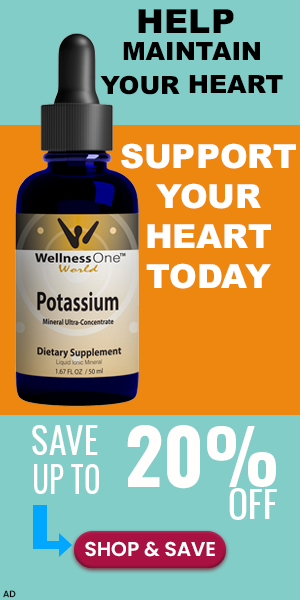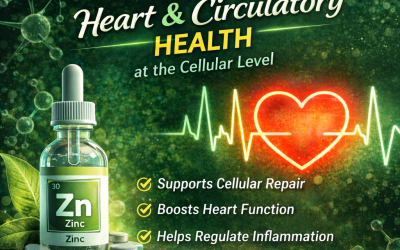Revitalize Your Heart: Nutrition for Recovery
Discover how the right foods and supplements can support your heart’s healing journey after a heart attack.
Explore Nutrition Insights
Heart-Healthy Foods
Supplement Guidance
Hydration Tips
Lifestyle Changes
Resetting Your Body After a Heart Attack
Embarking on the path to recovery after a heart attack involves more than just medical treatment. Nutrition plays a pivotal role in healing and preventing future complications.
By incorporating heart-friendly foods and mindful eating habits, you can significantly enhance your recovery process. Whole grains, lean proteins, and healthy fats are key components of a heart-healthy diet.
In addition to dietary changes, staying hydrated and considering supplements can further support your heart’s health. Always consult with a healthcare provider to tailor these strategies to your individual needs.
Step 1
Step 1: Embrace Heart-Healthy Foods
Begin your journey by incorporating a variety of colorful fruits and vegetables into your diet. These foods are rich in antioxidants and fiber, which help protect your heart and improve overall health.
Step 2
Step 2: Prioritize Hydration
Ensure you drink plenty of water throughout the day to maintain optimal body function. Avoid sugary drinks and limit caffeine to reduce stress on your heart.
Step 3
Step 3: Integrate Smart Supplements
Consider adding supplements like omega-3 fatty acids, magnesium, and CoQ10 to support heart health. Always consult with your doctor before starting new supplements.
Step 4
Step 4: Make Gradual Lifestyle Changes
Implement small, consistent changes such as adding a vegetable to each meal or taking a short walk daily. These habits build a foundation for long-term health.
Heart-Healthy Foods
Leafy Greens
Spinach and kale are packed with vitamins and minerals that support heart health and reduce inflammation.
Berries
Rich in antioxidants, berries like blueberries and strawberries help lower blood pressure and improve cholesterol levels.
Whole Grains
Oats, quinoa, and brown rice are excellent sources of fiber, aiding in cholesterol management and blood sugar control.
Lean Proteins
Skinless poultry, legumes, and fish provide essential nutrients without the saturated fats that can harm your heart.
Healthy Fats
Avocados, nuts, and olive oil offer heart-protective fats that support overall cardiovascular health.
Low-Sodium Options
Reducing salt intake helps manage blood pressure, a critical factor in heart health.
Stay Hydrated and Balanced
Hydration is often overlooked but plays a vital role in heart health and overall recovery. When your body is well-hydrated, your blood flows more easily, your heart doesn’t have to work as hard to pump, and nutrients are delivered more efficiently throughout the body.
What Counts as Proper Hydration:
-
Plain water is the gold standard. It’s calorie-free, easy on your body, and exactly what your system needs.
-
Infused water (like water with lemon, cucumber, or berries) adds flavor and can encourage you to drink more.
-
Herbal teas without caffeine (such as chamomile, peppermint, or rooibos) are hydrating and calming.
-
Broth-based soups or bone broth also contribute to your daily fluid intake.
-
Water-rich foods like watermelon, cucumbers, celery, oranges, and strawberries help hydrate your body naturally.
What Doesn’t Count as Effective Hydration:
-
Sugary drinks like soda, sweetened teas, and energy drinks can dehydrate and raise blood sugar levels.
-
Alcohol is dehydrating and puts strain on your heart and liver.
-
Caffeinated beverages (coffee, some teas, and energy drinks) can have a mild diuretic effect—okay in moderation, but not ideal as your main source of fluids.
Simple Ways to Drink More Water Throughout the Day:
-
Start your morning with a glass of water before coffee or breakfast. It wakes up your system and supports digestion.
-
Carry a reusable water bottle with you and refill it throughout the day. Keeping it in sight is a helpful reminder to drink.
-
Set reminders on your phone or use a water tracking app to keep yourself accountable.
-
Drink a glass of water before each meal. This not only helps you stay hydrated but may also help with portion control.
-
Use a straw or a tumbler you enjoy drinking from. Sometimes the container makes all the difference!
-
Try sparkling water (unsweetened) if you like a little fizz without the sugar or chemicals in soda.
-
Create a hydration habit. For example, drink a glass every time you return from the bathroom, check your email, or start a new task.
How Much Water Should You Aim For?
While the “8 glasses a day” rule is a good baseline, individual needs vary. A general guideline is to drink half your body weight in ounces of water per day. For example, if you weigh 160 pounds, aim for about 80 ounces of water daily—more if you’re active or live in a warm climate.
Staying properly hydrated helps regulate blood pressure, improve circulation, flush toxins, and reduce fatigue. It’s one of the simplest, most powerful things you can do for your heart—and it’s completely within your control.
Keep It Simple, Stay Consistent
The idea of changing your lifestyle after a heart attack can feel overwhelming—but it doesn’t have to be. The key is to focus on small, manageable changes that fit into your current routine. These small steps may not feel big at first, but over time, they create powerful results. It’s not about perfection—it’s about progress and consistency.
Here’s how to make those changes stick:
Start with One Habit at a Time
Trying to change everything at once can lead to frustration and burnout. Instead, pick one simple habit to work on for a week or two. Once it feels natural, add another. For example:
-
Week 1: Add one extra glass of water per day
-
Week 2: Take a 10-minute walk after lunch
-
Week 3: Swap out white bread for whole grain
-
Week 4: Prep veggies on Sunday for the week ahead
Pair New Habits with Existing Routines
This is called “habit stacking,” and it’s an easy way to build new routines. You simply attach a new habit to something you already do every day.
-
Drink a glass of water right after brushing your teeth
-
Stretch for 5 minutes while your coffee brews
-
Take your supplements right after breakfast
-
Go for a walk right after dinner
Make Your Environment Work for You
Set yourself up for success by making healthy choices easy and visible.
-
Keep a bowl of fruit on the counter
-
Place your water bottle where you can see it
-
Set out your walking shoes the night before
-
Prepare healthy snacks in advance and keep them at eye level in the fridge
Celebrate Small Wins
Acknowledge your efforts—no matter how small they may seem. Every step counts. Celebrate by tracking your habits in a journal, using a habit-tracking app, or just giving yourself a mental high five. Positive reinforcement builds momentum.
Give Yourself Grace
It’s okay if you skip a day or make a less-than-perfect food choice. What matters is getting back on track without guilt. Health is a lifelong journey, and flexibility is part of success.
Build a Support System
Change is easier when you’re not doing it alone. Talk to family members about your goals and invite them to join you for walks or healthy meals. You might also consider joining a local support group or connecting with others online who are on a similar journey.
Examples of Easy Daily Habits That Support Heart Health:
-
Drink water first thing in the morning
-
Take a 10-minute walk after meals
-
Add one green veggie to your lunch or dinner
-
Choose fruit instead of dessert a few times a week
-
Turn off screens 30 minutes before bed for better sleep
-
Practice deep breathing or gratitude journaling once a day
The beauty of small, sustainable habits is that they eventually become second nature. Over time, these daily choices shape a healthier, more energized version of you—without stress or overwhelm.
When to Talk to a Doctor
While many symptoms improve with healthy habits, it’s important to check in with your doctor if you experience:
- Chest pain or tightness
- Shortness of breath
- Dizziness or lightheadedness
- Swelling in your legs or feet
- Unexplained fatigue or weakness
- High blood pressure that doesn’t respond to lifestyle changes
- Concerns about medications or supplements
A follow-up plan with your healthcare provider is key to tracking progress, managing medications, and staying on the right path.
Nutrition and Recovery FAQs
What foods should I avoid after a heart attack?
Avoid foods high in saturated fats, trans fats, and sodium, such as fried foods, processed snacks, and sugary beverages.
How can I manage my diet to lower cholesterol?
Incorporate more whole grains, fruits, vegetables, and lean proteins into your diet while reducing intake of processed foods.
Are supplements necessary for recovery?
Supplements can be beneficial, but it’s important to consult with your healthcare provider to determine what’s right for you.
How much water should I drink daily?
Aim for at least 8 cups of water a day, adjusting based on activity level and climate. Staying hydrated is crucial for heart health.
Can lifestyle changes really make a difference?
Yes, small, consistent lifestyle changes can significantly improve heart health and reduce the risk of future heart issues.
Take Charge of Your Heart Health Today
Join a support group of people who can come along side you on your journey.












0 Comments